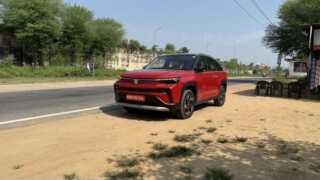- The Republican-controlled U.S. Senate looks to remove the EPA waivers that allow California’s strict emission regulations.
- The move could prevent California’s plan to ban all diesel- and gas-only new passenger vehicle sales by 2035.
- A Senate vote could happen sometime this week, and the decision could also impact state trucking industry regulations.
California’s plan to ban the sale of new diesel- and gasoline-only-powered vehicles by 2035 is facing a serious challenge this week, as Republican senators are targeting the three waivers that allow the state to enforce rules that exceed federal law. California alone makes up 11 percent of all new passenger vehicle sales in the United States. With many other states adopting its emissions rules, the CARB rules could affect as much as 40 percent of the market, forcing an industry shift. If the Senate successfully blocks these waivers, the push for an EV transition could slow or stall.Currently, plans laid out by California Governor Gavin Newsom require a rising percentage of zero-emission passenger vehicles over the next decade. By 2027, the new car mix should be 43 percent electrified or hydrogen-powered, rising to 68 percent by 2030, and finally 100 percent in 2035. Plug-in hybrids would still count as electrified vehicles, but not standard hybrids. The used-car market wouldn’t be affected by the law.There’s also a rule regarding medium- and heavy-duty vehicles on the books. Among the new ones sold, 40 to 75 percent would need to be zero-emission by the 2035 deadline, replacing their usual diesel powertrains. Further, a CARB rule featuring stricter testing limits for particulate matter and nitrogen oxides is also on the chopping block.Some automakers will likely view a relaxation of the California emissions standards with some relief, as their representatives have called the 2035 deadline unfeasible. SEMA, the Specialty Equipment Market Association, has also spoken out against California’s EV mandate, claiming that jobs are on the line for small businesses.Even if the waivers are rescinded or blocked, California lawmakers have indicated a willingness to sue. Several states are already suing the federal government over funds allocated for building out the public charging network. There’s sure to be much political maneuvering as the issue plays out, and we’ll update this story once the results of the Senate vote are announced.Related StoriesBrendan McAleer is a freelance writer and photographer based in North Vancouver, B.C., Canada. He grew up splitting his knuckles on British automobiles, came of age in the golden era of Japanese sport-compact performance, and began writing about cars and people in 2008. His particular interest is the intersection between humanity and machinery, whether it is the racing career of Walter Cronkite or Japanese animator Hayao Miyazaki’s half-century obsession with the Citroën 2CV. He has taught both of his young daughters how to shift a manual transmission and is grateful for the excuse they provide to be perpetually buying Hot Wheels.
Source: caranddriver.com







